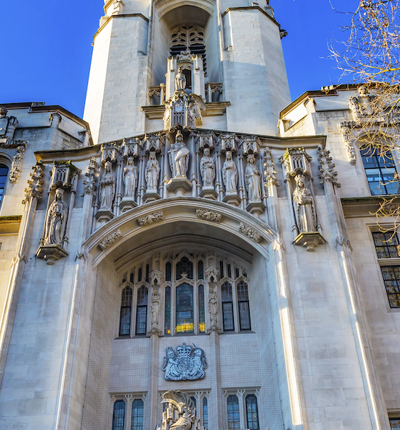
What does the Supreme Court’s ruling on holiday pay for part-year staff mean for workers?
Recently, the Supreme Court confirmed that part-year workers must receive 5.6 weeks’ statutory holiday pay, but what exactly does this mean for the UK’s workforce? Here, employment partner Michael Newman explains.
Posted on 15 August 2022
What was the Supreme Court’s Harpur Trust v Brazel judgment?
Ms Brazel is a music teacher who was employed by Harpur Trust on a permanent contract. She only worked during term-time and was paid for the hours she taught, which varied from week to week.
In 2011, the Trust changed how it calculated her holiday pay, which they said better reflected the hours she worked. Ms Brazel complained that this resulted in her receiving less paid holiday.
The long-running case ended up in the Supreme Court where it was decided that, like full-time workers, part-year workers are also entitled to 5.6 weeks of holiday per year.
What is a part-year worker?
A part-year worker is someone who works for part of the year under a permanent or continuous contract. These workers neither work the full number of hours worked by full-time workers, nor the full number of weeks worked by part-time workers.
This can include term-time only workers such as teachers, cleaners, lunch-time supervisors and teaching assistants, permanent seasonal workers (such as exam invigilators, football stewards) those on zero-hour contracts (those who do not sign a new contract every time they start a new work assignment), and offshore workers.
How is holiday pay calculated?
Calculating holiday pay is simple for full-time workers – they get 5.6 weeks of paid holiday.
It’s also relatively straightforward for part-time workers – those who work for the full year, but only work for part of the week. They also get 5.6 weeks of holiday, but it is pro-rata. This means it is proportional to the hours they work. For example, if they work half as much as a full-time worker, they are entitled to half as much holiday.
As a result of the Supreme Court’s decision, part-year workers also will be entitled to 5.6 weeks holiday. When deciding how much they should be paid for each week, the employer should take an average of the last 52 weeks that have been worked (so, ignoring weeks when the person was not working). This reference period used to be 12 weeks, but after April 2020was changed to 52 weeks.
For a part-year worker who also works part-time, their pay will be calculated in the same way it would be for anyone working part-time throughout the year. For example, a term-time worker who works three days a week will be entitled to 16.8 days’ holiday each year.
Why is this decision contentious?
Even if part-year workers only work for a few weeks per year, they are entitled to at least 5.6 weeks of holiday. This can put some part-year workers in a more favourable position than full-time workers when it comes to looking at the proportion of holiday pay compared to their pay overall.
The example given in this case was that of a school cricket coach, who would only work for one term, or invigilators, who worked only during the exam season. The Court of Appeal judgment said: “In principle you could have a permanent employee who worked only one week of the year, for which he or she earned, say, £1,000, and who would then be entitled to 5.6 weeks (notional) annual leave, for which they would receive £5,600”.
While the Supreme Court acknowledged this imbalance, it ruled that it was not enough to justify revising the statutory scheme. It is also remedied by making sure such an employee is not on a permanent contract.
Why is this ruling significant?
This judgment applies to all part-year workers and, as the Supreme Court is the final court of appeal in the UK for civil cases, the decision is final.
It will impact many employees across a range of sectors including schools, the NHS, and those on permanent zero hours contracts.
Could my holiday pay have been incorrectly calculated?
If you have an irregular working pattern, but your contract still covers the entire year, then your holiday pay may have been calculated incorrectly.
Importantly, any employer who calculates holiday pay by applying the 12.07% method (paying 12.07% of normal pay) is no longer correctly applying the law.
If you think you might be impacted by this ruling, you should take legal advice to make sure you are getting all the paid holiday that you are entitled to.
If you have more questions about holiday pay or workers' rights in general get in touch with us here.



